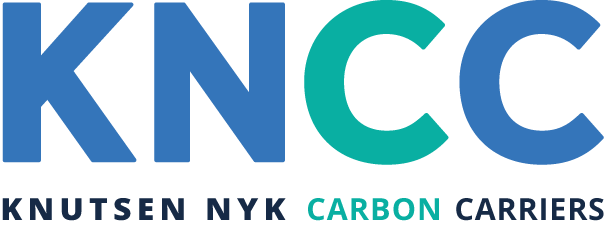Press release
JX, NYK, and KNCC Jointly Conduct Demonstration Experiment of Elevated Pressure (EP) Method in CO2 Liquefaction and Storage Process
-- Toward Social Implementation of CCS, Contributing to Cost and Site Area Reduction in the Value Chain --
JX Nippon Oil & Gas Exploration Corporation
Nippon Yusen Kabushiki Kaisha (NYK)
Knutsen NYK Carbon Carriers AS
On August 28, JX Nippon Oil & Gas Exploration Corporation (JX), Nippon Yusen Kabushiki Kaisha (NYK), and NYK’s affiliate Knutsen NYK Carbon Carriers AS (KNCC) conducted a demonstration experiment to study the optimization of the carbon dioxide (CO2) liquefaction and storage process (Note1) utilizing KNCC's proprietary technology “LCO2 – EP Cargo Tank” (Note2).
In May of this year, the three companies devised a CO2 liquefaction process (hereinafter referred to as the "Process") based on the isenthalpic expansion cooling and liquefaction process (Note 3), which utilizes the characteristics of the elevated pressure (EP) method that stores and transports liquefied CO2 at ambient temperature. The demonstration experiment was conducted at KNCC's demonstration facility "Test Rig" in Norway with the addition of a liquefaction unit for the Process. Through the experiment, CO2, which replicated the conditions under which it was gathered and transported by pipeline, was successfully liquefied and transferred to the LCO2-EP Cargo Tank. We conclude that the technology devised in this Process has achieved a technology readiness level (TRL) 6 (Note 4).
In principle, the liquefaction efficiency of this Process is equal to or higher than that of conventional liquefaction conditions and methods, and energy reductions of up to 20% are expected. In addition, the equipment required for this Process is simpler and more compact than conventional liquefaction methods, and modularization and floating systems can also be considered, which is expected to contribute to reducing the cost and site area of CO2 liquefaction facilities in the CCS and CCUS (Note 5) value chain.
Comparison of Isenthalpic Expansion Cooling and Liquefaction Process and External Refrigeration Process
Details of the demonstration experiment will be presented at future conferences and other events. The three companies will continue to work together to implement and promote the Process.
Observing the demonstration experiment. From left:
Tsutomu Yokoyama, Executive Officer, NYK Line
Anders Lepsøe, Managing Director, NYK Group Europe Norway
Tetsuo Yamada, Director, Executive Vice President, JX Nippon Oil Exploration Corporation
Oliver Hagen-Smith, CEO, Knutsen NYK Carbon Carriers AS
Comments from each company
Tetsuo Yamada, Executive Vice President, JX Nippon Oil Exploration Corporation
The success of this demonstration experiment is the result of the enthusiasm and professionalism of the three companies and represents an important milestone in the optimization of the CO2 liquefaction and storage process. Based on this achievement, we will continue to strengthen our collaboration with NYK and KNCC to implement the use of the Elevated Pressure (EP) Method, promote environmentally friendly businesses centered on CCS/CCUS, and further pursue the creation of social value for the realization of a sustainable society.
Tsutomu Yokoyama, Executive Officer, NYK Line
Since signing a memorandum of understanding (MoU), the three companies have worked together on a number of studies toward this demonstration experiment. I am very pleased that this experiment was successfully conducted. We are confident that this initiative will contribute to reducing the cost and site area of the liquefaction and storage process, which is an issue for CCS implementation. We will continue to strengthen our collaboration with JX Nippon Oil & Gas Exploration and KNCC, and contribute to the promotion of CCS implementation and the realization of a decarbonized society in Japan and abroad.
Oliver Hagen-Smith, CEO, Knutsen NYK Carbon Carriers AS
This is a major breakthrough for the CCS landscape. I am delighted with the teamwork among the parties and the success of the demonstration. The developed liquefaction method will be a game changer for the CCS industry as it enables seamless liquefaction of CO2 in the export process. Minimizing OPEX and the area required for liquefaction, but also in specific cases removing the need for onshore storage, is crucial in the development of CCS value chains. The developed liquefaction process along with the LCO2-EP Cargo Tanks again proves that KNCC and its partners provide optimized economical, flexible and optionality in solutions to the industry.
Company Overviews
JX Nippon Oil & Gas Exploration Corporation
Head office: Chiyoda-ku, Tokyo, Japan
Representative: Toshiya Nakahara, President and CEO
Website: https://www.nex.jx-group.co.jp/english/
Nippon Yusen Kabushiki Kaisha (NYK)
Head office: Chiyoda-ku, Tokyo, Japan
Representative: Takaya Soga, President
Website: https://www.nyk.com/english/
Knutsen NYK Carbon Carriers AS
Head Office: Haugesund, Norway
Representative: Oliver Hagen-Smith, CEO
Website: https://www.kn-cc.com
(Note 1) JX Nippon Oil & Gas Exploration and NYK and KNCC jointly study optimization of CO₂ liquefaction and storage process | NYK Corporation (nyk.com) (released March 21, 2024)
(Note 2) LCO2-EP Cargo Tank has been developed by KNCC to transport LCO2 at ambient temperatures and elevated pressures ( 0 to 10 degC / 34 to 45 barG).
(Note 3) The isenthalpic expansion cooling & liquefaction method adopted in this Process takes advantage of the temperature drop caused by depressurizing the captured CO2 to form a liquefied CO2 suitable for marine transport.
(Note 4) Technology readiness level (TRL) is a measure used to indicate the stage of development and readiness for deployment of a particular technology; the TRLs presented in HORIZON 2020 are shown as numbers from 1 to 9, with higher numbers indicating more mature technology. In this case, TRL 6 indicates that the technology is at a demonstration stage in an environment similar to that in which the demonstration system will be deployed.
(Note 5) CCS (Carbon dioxide Capture and Storage) is a process that captures and storages CO2 emitted from thermal power plants and factories, etc. in a stable underground geological formation. In addition to CCS, CCUS (Carbon Dioxide Capture, Utilization and Storage) includes a process that utilizes CO2 in production processes for crops, chemicals, construction materials, etc., and CO2-EOR (Enhanced Oil Recovery) technology, which increases oil field productivity by injecting and storing CO2 underground.




